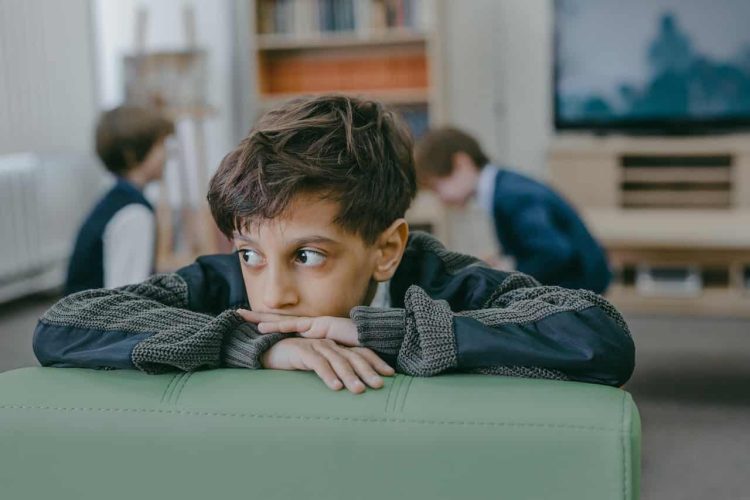Bullying is defined as unwelcome and aggressive behavior among school-aged children or teenagers that involves an imbalance of power. Children who bully others use leverage such as social popularity, access to compromising information, or physical strength to harm and control their peers. Bullying behaviors are also identified as such if they’re repeated, or have the potential to be repeated, over time. These behaviors can include verbal harassment, spreading rumors, social exclusion, and physical violence.
Any child involved in bullying incidents is at risk for long-term psychological problems, whether they perpetrate the bullying or are bullied themselves. Thus, it’s imperative for primary and secondary schools everywhere to adopt a zero-tolerance stance against bullying. The best schools in Singapore, such as Stamford American International School, will have strict, comprehensive safeguarding policies in place to preserve student welfare.
All the same, bullying in schools is a tricky problem to confront. Shame and fear of reprisal often prevent bullying victims from opening up about their experiences to others, even and especially adults in a position to help them. Thus, it’s important for the adults closest to them to watch closely for silent, often subtle changes in behavior that may point to bullying. Teachers and parents alike should keep an eye out for the following signs that a child is being bullied at school:
They’re Reluctant to Go to School
Although bullying incidents can occur anywhere, including online spaces, most traditional bullying incidents take place on school grounds. They can also take place in common areas in the vicinity of school, such as in playgrounds or on school buses.
If your child seems to be dragging their feet over getting ready for school in the morning, this could be a red flag. Younger children, for instance, tend to invent repeated excuses to stay home, such as recurring aches, pains, or illnesses. Teenagers, on the other hand, may skip school entirely. Knowing that, teachers should work closely with parents to monitor class attendance.
Kids who are being bullied may be especially eager to skip school on Mondays, as they probably won’t want to give up the sense of safety and comfort they’ve built up over the weekend. If you notice a student or child faking illness or cutting class consistently towards the beginning of the week, it may be a good idea to reach out to them and ask if they need help.
They Withdraw from Social Activities
If a child is observably withdrawn, despondent, or low on energy, this may be a sign that they’re being bullied in one of their school spaces. Parents should be especially concerned if kids isolate themselves in their rooms and generally avoid spending time with other family members. Children experiencing prolonged bullying may also vent their stress and frustration by lashing out at younger siblings, friends, or classmates.
Because bullying can also involve sabotaging or compromising social relationships, a child whose friendships seem to be failing or changing drastically may be a victim. Adolescent and teenage girls frequently experience bullying within their immediate friend groups, and these experiences are often difficult for the affected kids to recognize. One way you might monitor your child’s group of friends without coming across as overly invasive is to connect with their friends’ parents. That way, you’ll notice right away if a particular child is being excluded from birthday parties, group hangouts, and other events.
They Experience Persistent Stomachaches or Headaches
The intense stress and anxiety that bullying causes may manifest physically in the form of headaches or stomachaches. And even if your child or student may not actually be experiencing these ailments, they might also feel the need to fake them as a way to stay home from school, be sent home from school early, or avoid social engagements.
If you notice a child complaining of these symptoms frequently, it’s best to talk about it with them in a compassionate and non-judgmental manner. For example, you might point out that they seem to be feeling unwell more often lately and ask if they can tell you more about it. By asking open-ended questions, you can create a safe space in which you and the child can eventually identify and tackle the root of the problem.
They Have Trouble Sleeping
Insomnia and poor sleep are also common physical manifestations of stress and anxiety, and children with sleep problems will usually seem visibly worn down or exhausted the following day. You may also notice their exhaustion in other ways, such as their poor personal hygiene or their inability to focus. Whether these signs of exhaustion ultimately point to bullying or some other problem, it’s always best to reach out and check on the affected children.
They Adopt a “Victim Stance”
Bullied children will likely adopt meek, non-threatening body language instead of standing up to their aggressors. Individuals who exhibit this “victim stance” will walk and sit with their heads lowered, avoid eye contact with others, and be unwilling to share their thoughts and feelings even when asked.
Children who can’t build confidence and assertiveness over time and fall back on the victim stance will likely also be vulnerable to repeated or prolonged spates of bullying in the long term. As the adult in the situation, if you can perceive a child go from their usually cheerful or happy-go-lucky disposition into the victim stance, it’s time to reach out to them and let them know that they can feel safe around you.
Bullying at school is a serious problem for school-aged children and adolescents all over the world. With help from vigilant and concerned adults, however, bullied children have a good chance of escaping the experience and recovering from the stress that it causes. Do your part to make sure that bullying has no place in a child’s school environment.

